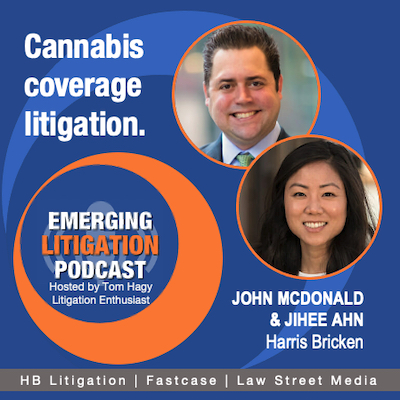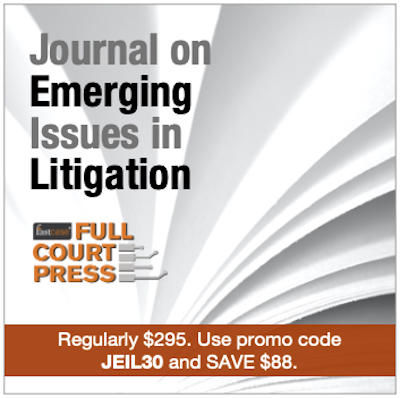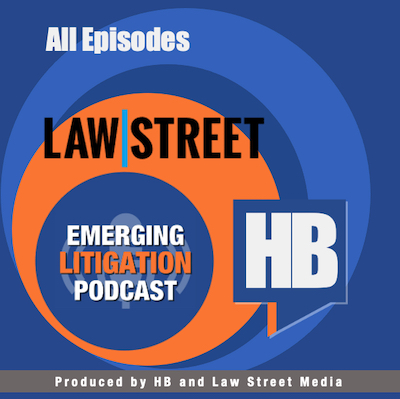Taking the High Ground:
Where Cannabis Insurance Litigation Is Trending (and Why)
“Absent a choice of law provision, the location where most of the insured activity took place will likely dictate which law applies. But how have federal courts reacted to applying cannabis-friendly state law in a forum where federal law arguably addresses underlying state concerns? The answer is: inconsistently.”
Abstract: The use and possession of cannabis remains illegal under the federal Controlled Substances Act. But a patchwork of state laws is bringing the country closer to some form of legalization. Some states allow its use for medical purposes, others have made it legal for recreational purposes, and others have decriminalized it. But when cannabis is involved in disputes that lead to litigation, and that litigation leads to policyholder–insurer disputes, that state law patchwork and the illegality of cannabis under federal law is when things get complicated. This tension plays out in several other aspects of running a cannabis business, such as banking and interstate transportation of goods. In this article, the authors discuss how it is up to litigators to frame their cases in ways that will determine the outcome of important disputes over insurance coverage.
Introduction: Like several other litigation issues presented by the (legal) emerging cannabis market in the United States, insurance disputes between cannabis policyholders and their insurers remain in their infancy, as far as reported decisions go. Although generally many insurance disputes (coverage actions) have a tried-and-true litigation playbook (on both sides), policyholders and their insurers in this particular space have been jostling for position in a battle to gain the high ground from the beginning—a matter as simple as selecting the forum when there is no clear direction on whether state or federal law should apply. To no one’s surprise, policyholders have been angling for the application of friendly state laws, whil insurers have been arguing that Schedule I is dispositive (preemptive) in federal court.
This is not a new concept for long-time players in the industry. The “Illegality Doctrine” is a centuries-old concept that can be summed up by dicta from the Holman v. Johnson decision from 1775: “No court will lend its aid to a man who founds his cause of action upon an immoral or an illegal act.” The doctrine is based on the public policy that a person should not be able to benefit from his or her own wrongdoing, and the courts should not enforce claims that harm the integrity of the legal system. The Illegality Doctrine has formed the basis for federal courts’ past unwillingness to enforce the entire gamut of cannabis business practices—from enforcing intellectual property rights to providing bankruptcy options, and so much in between that ultimately operated broadly to the industry’s detriment ….
 For more insights listen to my interview with John McDonald and Jihee Ann on the Emerging Litigation Podcast. If you like it (and I know you will) give us a rating!
For more insights listen to my interview with John McDonald and Jihee Ann on the Emerging Litigation Podcast. If you like it (and I know you will) give us a rating!
–Tom Hagy




